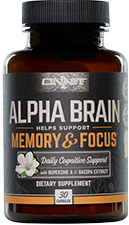Are all ketones created equal?
We're breaking down the key differences between deltaG® and HVMN.
Monday, July 18
by Catie Pauley
Supplementing with ketones has become a revolutionary method of optimizing metabolism, cognitive function, and muscle recovery.
Ketone supplements are more popular than ever these days, but it can be difficult to discern which products are a fad and which products are backed by science.
The primary reason people supplement with ketones is to raise their ketone blood levels to a level that supports clinical ketosis.
There are various types of ketones, but the most researched and documented ketone is called beta-hydroxybutyrate (BHB).
BHB is such a valuable ketone because once it enters the bloodstream, the body can use it as an energy source – one that's been found to be more efficient than glucose.
Because BHB creates less oxidative stress than glucose, it's also a cleaner energy source for the body.
Not only does BHB provide a more efficient source of energy than glucose, it's also a cleaner source of energy.
Do all ketone supplements raise BHB levels?
The answer isn't so simple.
deltaG®, developed at the University of Oxford, uses a patented formula that is based on a molecule called ketone monoester. This molecule directly converts two molecules ((R)-3-hydroxybutyl and (R)-3-hydroxybutyrate) into BHB, making deltaG® the only supplement on the market that raises BHB levels to a state of clinical ketosis.
deltaG® also utilizes the other part of the ketone monoester, butanediol, to raise BHB levels. However, butanediol must first travel in the blood to the liver, before it is converted into BHB, making the metabolic journey more complicated and less efficient.
Because deltaG® uses the conversion of both (R)-3-hydroxybutyrate into BHB as well as butanediol, it raises BHB levels above 2 mM.
HVMN also contends to raise BHB levels, but the science isn't as straightforward as they claim. Their ketone supplement relies solely on butanediol to raise BHB levels, which is less effective due to the fact that the requirement for the conversion of butanediol in the liver makes it less ketogenic.
Unlike deltaG® which is backed by over 60 clinical studies, HVMN's claims have no clinical evidence. HVMN affirms on their website that butanediol is converted into BHB with "near 100% efficiency". However, the claim has no reference to a scientific study.
Not only was deltaG® developed by leading scientists at the University of Oxford, it's also been clinically proven to efficiently raise BHB levels.
For science-backed, data-driven results, deltaG® is a no-brainer.
If you're still not certain who to trust with your ketone supplementation regimen, deltaG® has a solution for you. They have partnered with Keto-Mojo, one of the world's biggest producers of BHB meters. You can test how high deltaG® raises your BHB levels and assess its effectiveness on your own.
Not only can you trust the science of deltaG® – you can trust the results of its customers.
deltaG® has 10+ years of record setting use by Olympic Athletes, Tour de France riders, Formula 1 drivers, NBA, NFL, FIFA, Ironman, and many other of the world's highest performers.












